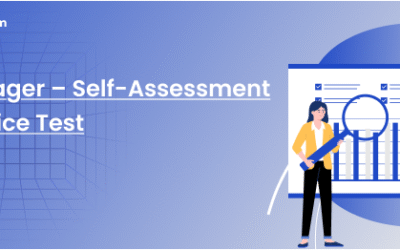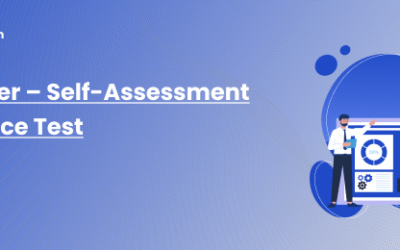Importance of Effective Recruitment Management
Recruitment management is integral in ensuring that the workforce remains adaptive to the ever-evolving business environment. It allows a company to respond promptly to market changes by acquiring talents with the necessary skills. Moreover, effective recruitment practices are key to reducing the likelihood of costly hiring mistakes, which can lead to lost productivity and resources.
The reputation of a company also hinges on its recruitment strategies. A transparent and professional recruitment process enhances an employer’s brand, attracting top-tier candidates while bolstering the company’s standing in the industry. In essence, successful recruitment management is not just about the here and now, but also about investing in the sustainable growth and stability of a business.
Key Components of Recruitment Management
At the heart of recruitment management are several key components that, when combined, create a robust hiring strategy. Firstly, a well-defined job description is paramount; it should clearly outline the role, responsibilities, and qualifications required. This ensures that candidates understand the position and can self-assess their suitability.
Another vital component is the sourcing of candidates, which involves a mix of strategies such as job postings on various platforms, engaging with recruitment agencies, and leveraging social media. This ensures a diverse pool of applicants from which the best candidate can be selected. Additionally, an efficient applicant tracking system (ATS) is crucial for managing the influx of resumes and applications that a job opening can generate.
The selection process is another pillar of recruitment management, encompassing screening methods such as interviews, assessment tests, and background checks. This rigorous process is designed to evaluate not only the skills and experiences of the candidates but also their potential cultural fit within the organisation. Each of these components must be executed with precision and fairness to maintain the integrity of the recruitment process.
Recruitment Management Process
The recruitment management process is an intricate journey that begins with the identification of a vacancy and culminates with the onboarding of a new employee. Initially, it involves a thorough analysis of the job requirements and the creation of a recruitment plan. This plan outlines the timetable, resources, and channels that will be used to attract candidates.
Once the recruitment plan is in motion, the next step is to attract candidates. This involves marketing the job opening through various means, ensuring maximum visibility to attract a high volume of quality applicants. The subsequent stage of screening and shortlisting candidates is critical, as it sifts through the applicant pool to identify those who best meet the job criteria.
The final stages of the recruitment process include conducting interviews, evaluating candidates, and ultimately selecting the most suitable individual for the role. This is followed by the job offer, negotiations, and the onboarding process. Each step of this journey requires meticulous attention to detail to ensure a fair and effective recruitment process.
The Role of Technology in Recruitment Management
Technology has revolutionised the way recruitment is managed, making the process more efficient and far-reaching than ever before. Advanced ATS systems enable hiring managers to track applicants with ease, automate communication, and maintain a database of potential candidates for future positions.
Social media platforms have become a powerful tool in the recruiter’s arsenal, enabling companies to reach a wide audience, build their employer brand, and engage with potential candidates in real-time. Moreover, technology has facilitated the use of online assessments and video interviews, allowing for a more flexible and comprehensive candidate evaluation process.
The rise of big data and analytics in recruitment management cannot be understated. These technologies provide insightful metrics that help refine recruitment strategies, predict hiring needs, and improve the overall quality of hires. By harnessing the power of technology, organisations can streamline their recruitment processes, reduce costs, and secure top talent more effectively.
Challenges in Recruitment Management
Despite advancements in technology and strategy, recruitment management faces several challenges. The fast pace of change in skill requirements due to technological innovation means that recruiters must constantly adapt their strategies to source talent with emerging skills. There is also the ongoing struggle to balance the need for quality hires with the pressure to fill positions quickly.
Diversity and inclusion in the workplace is another significant challenge. Organisations must ensure that their recruitment practices are free from biases, whether conscious or unconscious, to build a workforce that reflects a rich mix of backgrounds, perspectives, and experiences. Furthermore, compliance with employment laws and regulations is a constant concern, requiring recruiters to stay informed and diligent.
Another challenge is the high level of competition for top talent. In a candidate-driven market, organisations must work harder to stand out as employers of choice. This often means offering competitive salaries, benefits, and career development opportunities to attract and retain the best candidates.
Best Practices for Successful Recruitment Management
To navigate the complexities of recruitment management successfully, several best practices should be adopted. Clear communication throughout the recruitment process is essential; from the job advertisement to interview feedback, candidates appreciate transparency and prompt responses.
Employer branding is also a critical factor; a strong, positive employer brand can significantly enhance a company’s ability to attract top talent. This involves not just marketing the company well, but also ensuring that the work culture and employee experiences reflect the brand promise.
Additionally, investing in training for hiring managers and recruiters on interviewing techniques and diversity can help reduce biases and improve the selection process. It’s also important to create an efficient and pleasant candidate experience, as this reflects on the company and can influence a candidate’s decision to accept a job offer.
Recruitment Management Software and Tools
The market is replete with a variety of recruitment management software and tools designed to automate and optimise the hiring process. ATS systems are among the most widely used tools, helping to manage candidate data, post job openings to multiple platforms, and screen applications based on predefined criteria.
Other tools include candidate relationship management (CRM) software, which helps build and maintain relationships with potential candidates, and recruitment marketing platforms that assist in creating compelling job postings and campaigns. Additionally, there are specialised tools for skills testing, video interviewing, and background checks, all of which contribute to a more efficient and effective recruitment process.
When selecting recruitment management software, it’s important to consider the specific needs of the organisation, the level of support and training provided, and the integration capabilities with other HR systems. The right tools can significantly reduce administrative burdens and improve the overall quality of hires.
Recruitment Management Metrics and Analytics
Metrics and analytics are indispensable in assessing the effectiveness of recruitment strategies and making data-driven decisions. Key performance indicators (KPIs) such as time to hire, cost per hire, and applicant to interview ratio provide valuable insights into the efficiency of the recruitment process.
Quality of hire is another crucial metric, often evaluated through new hire performance, turnover rates, and satisfaction levels. By regularly reviewing these metrics, organisations can identify areas for improvement and adjust their recruitment practices accordingly.
Predictive analytics is also gaining traction in recruitment management. By analysing historical data, organisations can forecast future hiring needs, predict the success of candidates, and proactively address potential skill gaps. This forward-thinking approach can give companies a competitive edge in the war for talent.
Conclusion: The Future of Recruitment Management
The future of recruitment management is one of continuous innovation and adaptation. As the business world evolves, so too must the strategies and tools used to attract and retain top talent. Companies that embrace the latest technological advancements and uphold best practices in recruitment management will be well-positioned to build a strong, dynamic workforce.
The integration of artificial intelligence and machine learning is likely to further personalise the recruitment experience and enhance decision-making processes. Moreover, the focus on candidate experience and employer branding will continue to play a significant role in attracting high-quality candidates.
Ultimately, the success of recruitment management lies in its ability to align with the broader business objectives and culture of an organisation. By understanding the intricacies of this field and continuously refining their approach, companies can ensure that they not only fill positions but do so with the best possible talent.
In conclusion, recruitment management is an intricate, multifaceted discipline that requires a strategic approach, a keen understanding of technology, and a commitment to best practices. It’s a vital component in securing the human capital that drives business success, and as such, it demands ongoing attention and investment from organisations of all sizes and industries.




